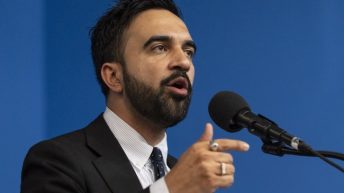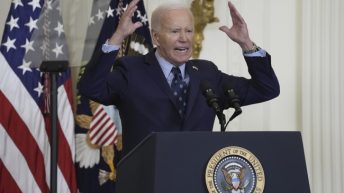Former President Barack Obama reportedly reacted angrily after Rep. Nancy Pelosi quickly backed Kamala Harris as the Democratic replacement for Joe Biden in 2024, a development that underscores sharp tensions inside the party and raises fresh questions about who calls the shots in Democratic circles.
This disagreement is about more than personalities; it highlights a strategic split between high-profile figures who want to control the party’s direction and others who fear rushed decisions will harm electoral prospects. For Republicans watching, it looks like Democrats are fraying at the edges while scrambling to manage damage control. The swift endorsement speaks to a leadership class eager to set narratives before voters get a say.
Nancy Pelosi’s endorsement of Kamala Harris arrived quickly and definitively, and that speed apparently set off a chain reaction at the top levels of the Democratic establishment. Barack Obama’s reported fury suggests internal protocols and expectations were violated, or at least felt to be. From a conservative perspective, this is a sign Democrats are more focused on elite coordination than grassroots consensus.
Pelosi has long been a central figure in Democratic operations, and her moves carry weight with fundraisers, activists, and donors. When she publicly backed Harris to replace Biden, she effectively tried to shape the conversation and narrow the field. That tactical push makes sense for those who prioritize continuity, but it alienates voters who want transparency and broader debate.
For Republicans, the spectacle of internal squabbling is politically useful because it exposes weakness. Voters who want stability and clear leadership see infighting as evidence of chaos. The optics of a former president clashing with a former House speaker feed a narrative that Democrats are internally divided and unable to unify around a convincing message.
There’s also a practical angle: endorsements matter more inside party circles than with undecided general election voters. Pelosi’s swift support was clearly aimed at party elites and institutional backers, not the broad electorate. That approach can consolidate resources but risks alienating rank-and-file members who feel shut out of major decisions.
Observers on the right will point out that this episode underscores an enduring Republican talking point: Democrats run their party top-down. That critique hits home when leadership moves quickly to crown a successor without an open, robust contest. Republicans can portray their own processes as more open by contrast, even when internal battles exist on both sides.
Media coverage of the incident emphasized emotion and surprise, which is useful in shaping public perception. Reports that Obama was furious add drama and make the dispute look personal rather than purely strategic. Political operatives know how powerful that framing can be, and Republicans will use it to argue that Democrats are driven by internecine drama rather than policy goals.
Campaign strategists on both sides understand endorsements as a form of inside baseball—useful for signaling to donors and activists, but limited in persuading undecided voters. Pelosi’s endorsement might shore up institutional support for Harris, but the public will ultimately decide if that support translates into votes. In the meantime, Republicans see an opportunity to highlight elite maneuvering that contrasts with their message of accountability.
There are also generational and ideological tensions at play. Pelosi represents an older guard with deep institutional knowledge, while figures like Harris embody a forward-facing image the party wants to project. When those forces clash, the result can be confusion over priorities and mixed signals to voters. Republicans will cast that as evidence Democrats lack a coherent vision beyond managing internal power dynamics.
Ultimately, this dispute is a reminder that presidential politics are messy and often personal. Leaders on the Democratic side are jockeying for advantage, sometimes at the expense of unity. For Republicans, the benefit is clear: the more Democrats look unsettled, the stronger the case for voters to stick with conservative stability.
Voters who pay attention to these developments should consider how party decisions are made and who benefits from quick endorsements. Swift moves by elites may secure short-term loyalty among insiders but can create long-term resentment among the base. That dynamic plays into Republican messaging about openness, accountability, and respect for voters’ voices.
One lesson here is that internal endorsements rarely settle matters in a democracy; they start conversations that voters ultimately resolve. The reported friction between Obama and Pelosi is one episode in a larger story about how parties handle leadership transitions. Republicans will use episodes like this to argue their rivals prioritize power plays over policy clarity.
From a conservative viewpoint, the moment reinforces a broader critique: Democratic leaders tend to manage outcomes rather than open them to full public debate. That perception can be politically damaging, especially when trust in institutions is already shaky. Republicans will press this advantage by highlighting how closed-door decisions contrast with their promises of transparency.
In short, the episode involving Pelosi’s quick backing of Harris and Obama’s reported reaction offers a snapshot of elite-level tension in the Democratic Party. It reveals how endorsements function as tools of influence and how they can provoke backlash from within. For Republicans, it’s a reminder that political vulnerabilities often come from inside the tent.





Add comment